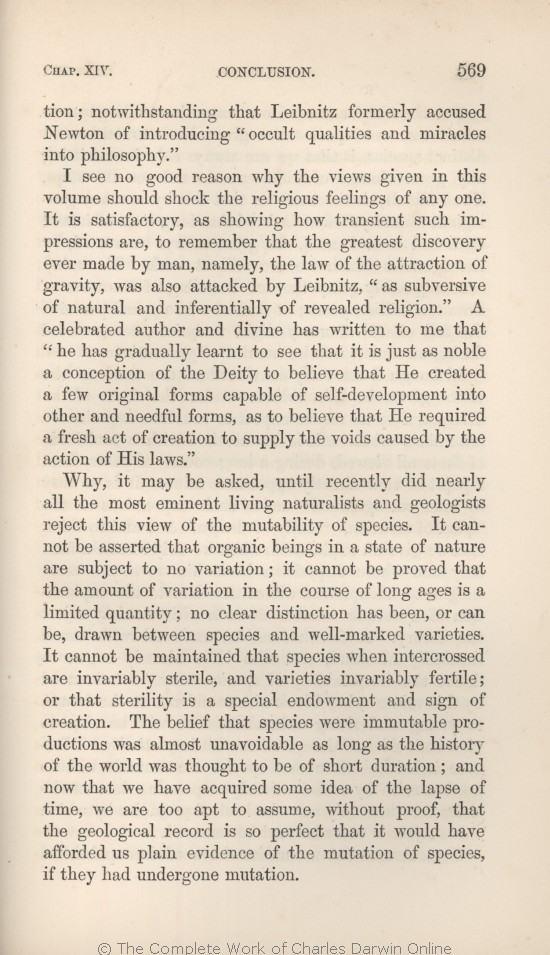notwithstanding that Leibnitz formerly accused Newton of introducing "occult qualities and miracles into philosophy."
I see no good reason why the views given in this volume should shock the religious feelings of any one. It is satisfactory, as showing how transient such impressions are, to remember that the greatest discovery ever made by man, namely, the law of the attraction of gravity, was also attacked by Leibnitz, "as subversive of
natural | natural 1861 1866 1869 | | natural, 1872 |
| revealed 1861 1866 1869 | | revealed, 1872 |
| religion." 1861 1866 1869 |
| religion." A celebrated author and divine has written to me that "he has gradually learnt to see that it is just as noble a conception of the Deity to believe that 1872 |
| 1 blocks not present in 1859 1860 1861 1866 1869; present in 1872 | | He created a few original forms capable of self-development into other and needful forms, as to believe that He required a fresh act of creation to supply the voids caused by the action of His laws."
|
| until recently did nearly 1869 1872 |
| have 1859 1860 1861 1866 |
| all 1859 1860 1869 1872 | | nearly all 1861 1866 |
| reject this view of 1869 |
| rejected this view of 1859 1860 1861 1866 |
| disbelieve in 1872 |
| species. 1869 1872 | | species? 1859 1860 1861 1866 |
|









